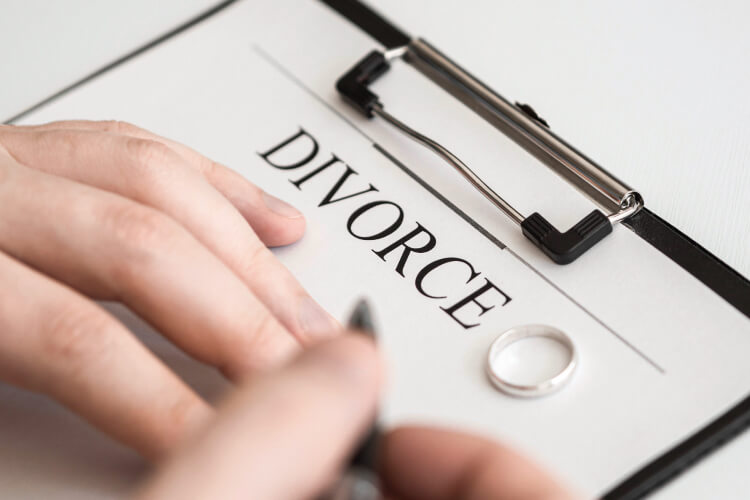Divorce is a tumultuous time for anybody who has experienced it in the past, or who is currently going through it. We know that because the mental and emotional side of the process is tough enough for a number of reasons, sometimes it’s hard to know where to start in terms of legal proceedings.
As a result, we’re here to help guide you through the basic steps of starting divorce proceedings.
The basics of divorce law in England and Wales
In England and Wales, there are a few conditions which must be present to be allowed to divorce. The first of which is that you’ve been married for over a year, the second of which is that your relationship has permanently ceased, and finally, your marriage is legally recognised in England and Wales.
Of course, issues such as financial settlements, child custody following divorce and other relevant issues are addressed during the divorce proceedings.
In terms of proving that your relationship has permanently ended, you don’t actually have to prove a specific reason for this, as you can seek a ‘no fault divorce’ which allows a divorce without the need to prove fault per the Divorce, Dissolution and Separation Act 2020. Simply confirming that the marriage has irretrievably broken down and has lasted at least one year is legally enough to justify a divorce.
If these conditions are met, you can begin applying for a divorce and start the entire process.
Who can start divorce proceedings?

In England and Wales, both spouses have the right to initiate a divorce. This can be done as an individually or together, if the divorce has been spoken about and agreed upon:
- Sole application – One spouse is listed as an ‘applicant,’ whilst the other is named as the ‘respondent.’ Essentially, one person is pushing for the divorce, when the other doesn’t necessarily agree or wish to cooperate.
In this case, the applicant is likely to pay the full court fee. Negatives of a sole application is that it can increase conflict, and lead to a more expensive and drawn out process.
- Joint application – Both spouses are listed as applicants in a process which requires a high level of agreement between the parties. Spouses must agree on how to split the cost, but one party might attempt to dominate the decision-making process.
On the plus side, a joint application promotes a smoother and easier divorce. A joint application can be switched to a sole application after 20 weeks if the application does not proceed due to lack of cooperation.
Where possible, it’s generally preferable to proceed with a joint application for an amicable and smoother separation.
Do you need a solicitor to start divorce proceedings?
It is recommended to seek legal advice from a solicitor before starting the divorce process, but it’s not a legal requirement. If you want to, you are entitled to handle the entire legal process yourself.
One reason we’d suggest speaking to a solicitor is because divorce is often a complicated, stressful process which is best handled by a third party professional who is not emotionally invested in the situation and can be trusted to give you advice which is truly in your best interests. This applies both for sole and joint divorce applications; a solicitor will definitely make your lives easier.
Another good reason to employ an experienced solicitor is if you are concerned about the potential outcomes of the divorce. You may be worried that your partner will push for an unfair settlement regarding finances or even child custody, so a solicitor can present your case in the best possible way, clearly displaying your evidence as well as your side of the story.
If you’re looking to start divorce proceedings, and you feel you need a bit of professional advice to guide you through the process, contact us at VM Family Law.ment (lump sum), paid over a fixed period, or in some cases until a party is remarried or dies.
Documents to gather before starting divorce proceedings
When starting divorce proceedings, you’ll need to gather a few documents:
- Divorce (D8) petition
- Marriage certificate
- Court fees/exemption forms
- Any financial documents which may be relevant to your case
If you are unable to find your marriage certificate, you can contact the Registrar of Births, Deaths and Marriages for a copy of it.
We’ve got more information about the documents you need for a divorce in our dedicated blog: ‘What Documents Do You Need to File for a Divorce’.
Initial application for a divorce
If you think you’re ready to make the initial divorce application, and you think you could use some legal advice or support from professionals dedicated to making your life easier, don’t hesitate to get in contact with the VM Family Law team. We’re here to help, and experienced in all things divorce.
